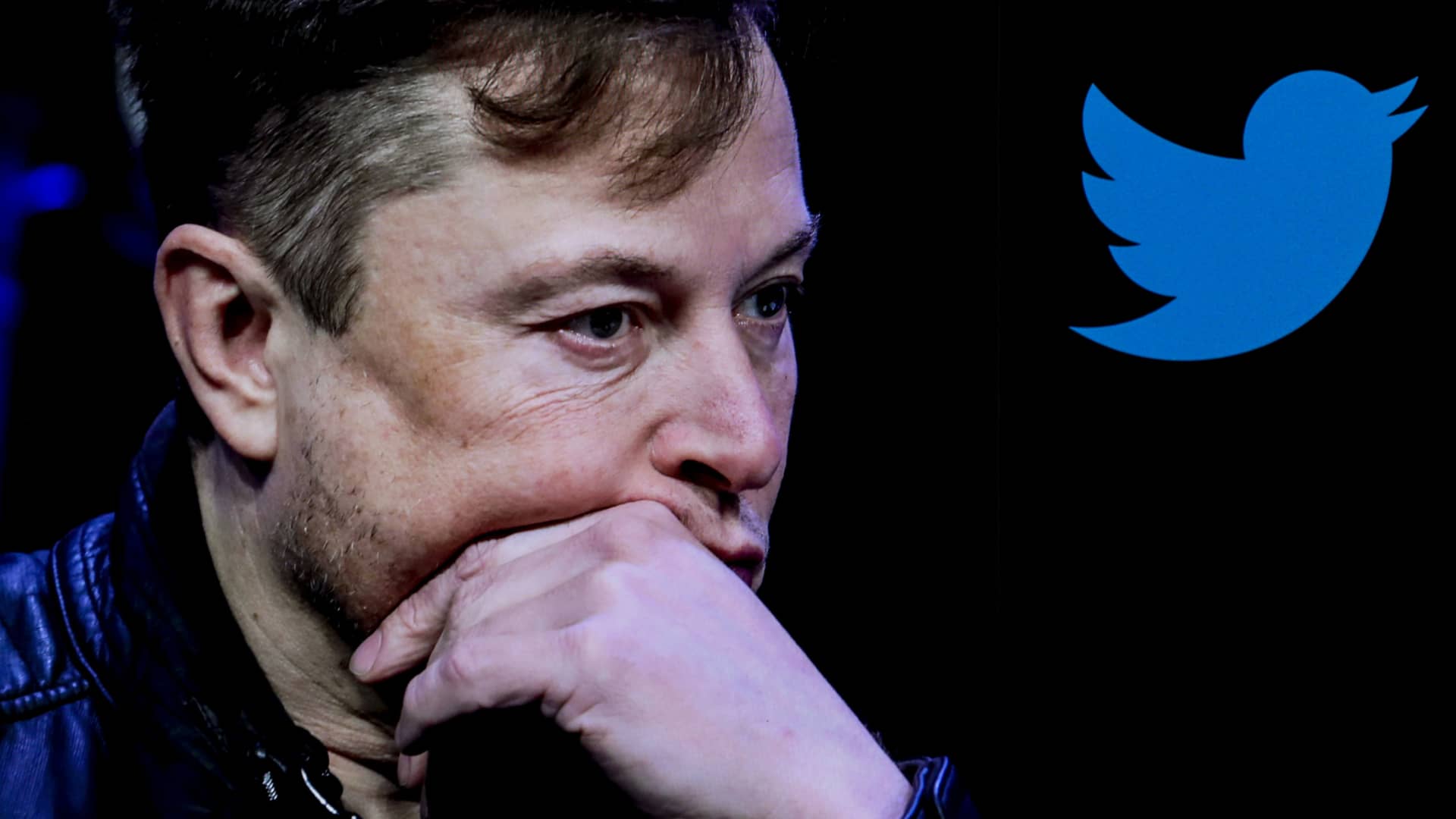In this photo illustration, the image of Elon Musk is displayed on a computer screen and the logo of twitter on a mobile phone in Ankara, Turkiye on October 06, 2022.
Muhammed Selim Korkutata | Anadolu Agency | Getty Images
After closing a $44 billion transaction to take Twitter private, Tesla and SpaceX CEO Elon Musk — now the de facto CEO of Twitter — announced that he plans to form a “content moderation council” at the social networking company. He says he will not make any “major content decisions” or reinstate any accounts that were previously banned before the council convenes.
In May 2022, after Musk had agreed to buy Twitter at $54.20 per share, he said he would reverse Twitter’s lifetime ban on former President Donald Trump if the acquisition went through.
At the time, Musk said, “I would reverse the permanent ban… I don’t own Twitter yet. So this is not like a thing that will definitely happen, because what if I don’t own Twitter?”
Musk has not yet offered details about how his content moderation council will work, who will be invited to it and whether Twitter’s will be more or less independent or powerful than Facebook’s oversight board.
Twitter rival Facebook has been roundly criticized for using a council approach to making content moderation decisions.
One of Musk’s first big moves after closing the deal was to fire Twitter’s CEO, Parag Agrawal, and other executives including its prior head of safety, Vijaya Gadde, who was involved in the decision to suspend Trump, and ban political advertising on Twitter.
Twitter banned Trump from the platform in January 2021 following the attack by his supporters on the U.S. Capitol, which occurred just as a joint session of Congress met to certify the election of President Joe Biden. The riot was intended to disrupt the counting of the electoral votes.
As CNBC previously reported, Trump was issued a subpoena earlier this month by the House select committee investigating the Jan. 6 riot.
The committee, which voted unanimously on this move, is requiring Trump’s testimony under oath next month and records relevant to their probe into the attack, which the panel noted came after weeks of his denying losing the 2020 election to President Joe Biden.
Committee Chair Rep. Bennie Thompson, D-Miss., and Vice Chair Liz Cheney, R-Wyo., in a letter to Trump cited what they called his central role in a deliberate effort to reverse his loss in the 2020 presidential election and to remain in power.
As NBC News previously reported, a Twitter employee named Anika Navaroli provided testimony to the Jan. 6 committee suggesting that the social network did not do everything in its power in time to prevent violence on that day.
It was clear that individuals using Twitter were plotting violence, according to her testimony, and Twitter detected a surge in violent tags like “Execute Mike Pence” around Jan. 6, for example. Trump had “fanned the flames” of violent users’ persistent calls to hang Mike Pence, she testified.
CNBC could not immediately ascertain whether Navaroli is still employed at Twitter.
Early in the Trump presidency, Musk served on a White House economic advisory board and a manufacturing jobs initiative council. But he stepped down from both in 2017, after Trump withdrew the U.S. from the Paris climate accords.
Despite this, Trump praised Musk effusively in 2020, calling him “one of our great geniuses” during an interview with “Squawk Box” co-host Joe Kernen at the World Economic Forum in Davos, Switzerland.
Trump praised Musk again on Friday for taking Twitter private. The former president previously said he would not return to the platform, but that could change now that the company is run by Musk.
In May, Musk tweeted, “In the past I voted Democrat, because they were (mostly) the kindness party. But they have become the party of division & hate, so I can no longer support them and will vote Republican.”

